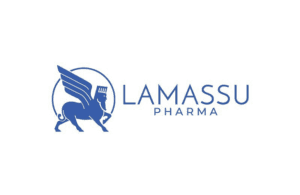 Acute pancreatitis, involving a sudden inflammation of the pancreas, is a major unmet need in gastroenterology. Severe cases can land patients in the ICU for weeks or months, while treatment options are relegated to support. The condition causes approximately 330,000 hospital admissions annually, according to a 2018 study. Some 20,000 people in the U.S. die from the disease each year.
Acute pancreatitis, involving a sudden inflammation of the pancreas, is a major unmet need in gastroenterology. Severe cases can land patients in the ICU for weeks or months, while treatment options are relegated to support. The condition causes approximately 330,000 hospital admissions annually, according to a 2018 study. Some 20,000 people in the U.S. die from the disease each year.
Lamassu Pharma (Durham, N.C.) is developing a drug known as RABI-767 that could offer hope to patients with severe acute pancreatitis. The company is gearing up for a Phase 1 trial for the drug.
Initially discovered by the Mayo Clinic, RABI-767 is a small molecule lipase inhibitor and Lamassu’s lead candidate. After Mayo performed several experiments on the drug candidate, Lamassu moved swiftly to license it. “We kind of went zero to 100 in two seconds,” said Dr. Gabi Hanna, CEO of the company.
Offering a treatment option for patients with severe acute pancreatitis could have a sizable impact, Hanna said. At present, physicians treating severe forms of the disease tend to focus on providing oxygenation and fluids while keeping tabs on necrosis and the function of other organs. “Kidney failure is very common,” Hanna said.
RABI-767 is grounded in “a unique scientific approach,” Hanna said. For one thing, the drug would be delivered via intraperitoneal (IP) injection in the abdomen. The drug delivery method may be “very untraditional,” Hanna acknowledged, but it could protect the tissue around the pancreas and prevent enzymes within it from causing damage to other parts of the body.
“You don’t want enzymes that are responsible for digesting meat to start digesting your body,” Hanna said.
When the pancreas is inflamed, and blood vessels within it are damaged, it is difficult for a drug in the bloodstream to penetrate it. Such considerations led to the idea of IP injection.

Dr. Gabi Hanna
“We got a lot of pushback regarding IP injection,” Hannah acknowledged. “The traditional wisdom in pharma often is, ‘You shouldn’t be the first to try something new,’” he said. “Be we decided to stick with the science and increase the chances of success rather than follow an established path.”
Hanna envisions that interventional radiologists would administer the drug via GI endoscopy or by informing drug delivery with CT or ultrasound to “deliver the drug to a targeted area very accurately,” Hanna said.
In preclinical studies, RABI-767 reduced the breakdown or release of unsaturated and saturated fats in acute pancreatitis attacks. Rapid breakdown of unsaturated fat can exacerbate acute pancreatitis.
While the company is currently focused on RABI-767, in time, it could become “more of a portfolio company,” Hanna said. That approach is hinted at in the company’s name. “Lamassu” refers to a mythological hybrid of a human, lion, eagle and bull. Similarly, “we envisioned having multiple assets — bringing the best science from each indication together,” Hanna said.